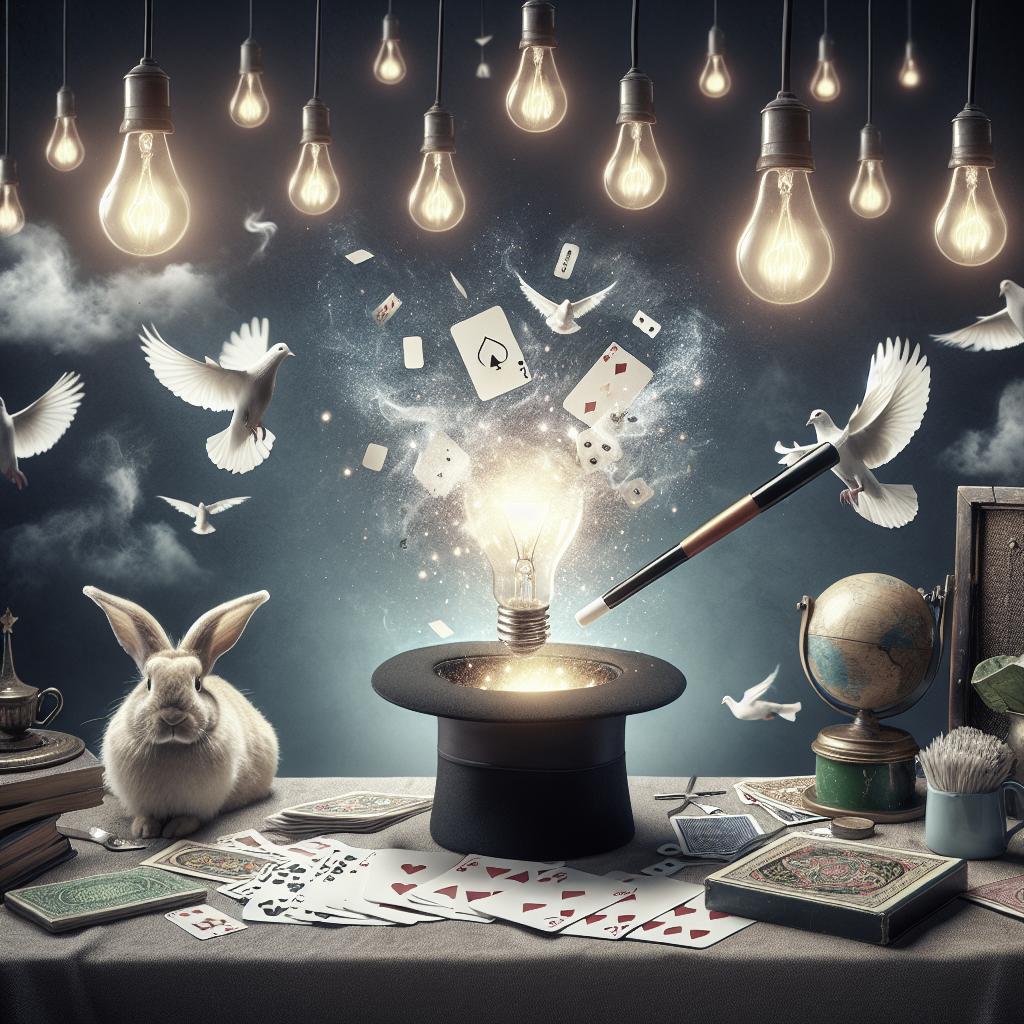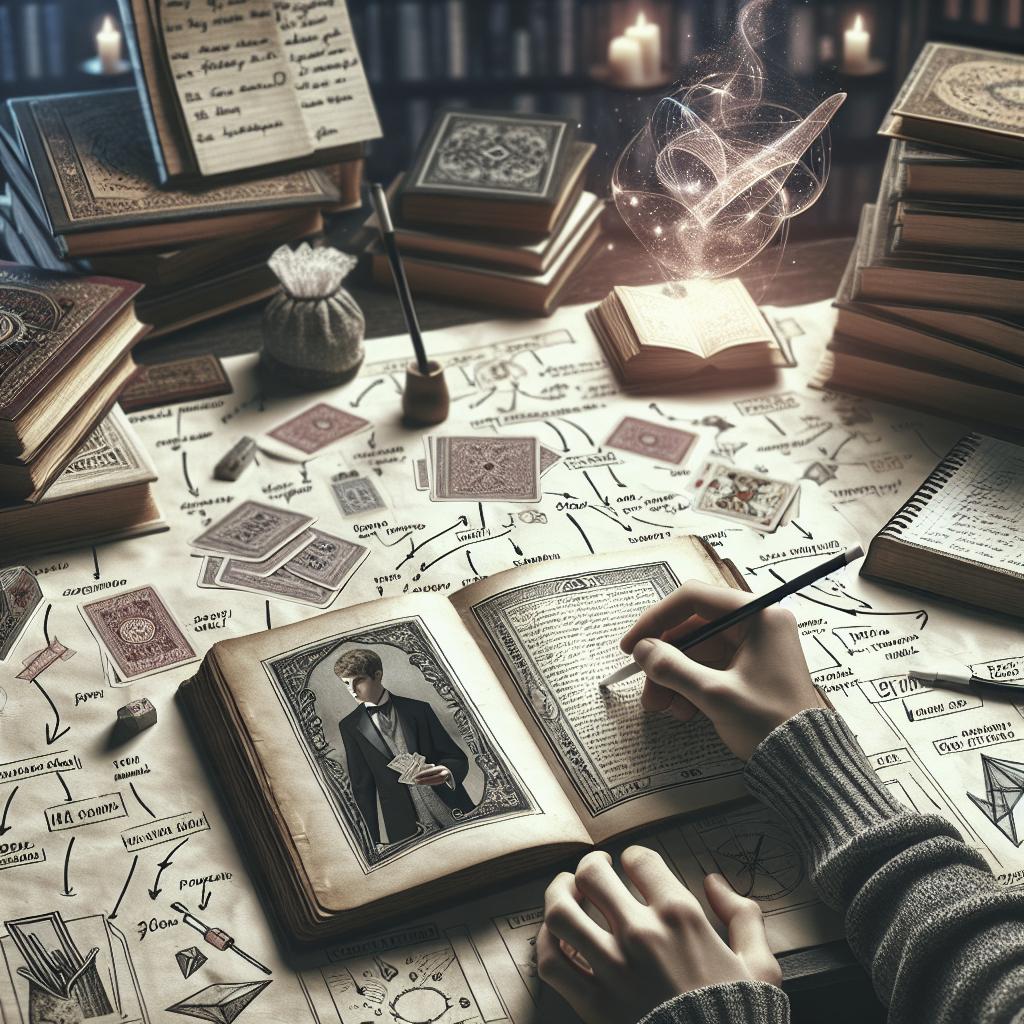“`html
Introduction to the Psychology of Magic
Magic has fascinated, entertained, and bewildered audiences for ages, enchanting young and old alike with its seemingly impossible feats. At its core, the allure of magic lies in its ability to defy the ordinary and twist reality’s perception, generating astonishment and wonder. This article delves into the key elements of surprise that make magic so compelling. From understanding the psychology behind our fascination to exploring cognitive illusions and cultural impacts, we unravel how magic captivates the mind. We will also touch on the magician-audience dynamics and explore the role of belief and skepticism in appreciating this art form.
The Appeal of Magic and Its Impact on the Mind
Magic holds a profound appeal largely due to its power to ignite curiosity and provoke a sense of wonder. It momentarily suspends the laws of nature and challenges our understanding of reality, creating a captivating mental spectacle. This allure is rooted in the way magic engages the mind’s natural inclination toward curiosity and exploration.
The impact of magic on the mind extends beyond mere entertainment. It taps into cognitive processes, activating areas of the brain associated with surprise and enjoyment. The experience of witnessing magic is akin to a mental puzzle that demands the attention of the audience, keeping them engaged and prompting a deeper exploration of the trick’s mechanics.
The Role of Belief and Skepticism
Belief and skepticism play pivotal roles in the appreciation of magic. While belief in a magician’s ability to perform the impossible enhances the sense of wonder, skepticism serves as a counterbalance that pushes us to question and understand. This dynamic interplay creates a mental paradox where audiences find joy in being deceived while simultaneously striving to unravel the mystery.
Magic leverages this tension by delivering unexpected outcomes that challenge established beliefs. The magician’s skill lies in convincing the audience to suspend disbelief, creating an atmosphere where the impossible becomes temporarily plausible. This delicate balance between belief and skepticism is crucial for maintaining the element of surprise.
Psychological Theories of Magic Appreciation
Several psychological theories attempt to explain why we find magic so fascinating. One such theory is the Cognitive Dissonance Theory, which suggests that the conflict between what we see and what we know creates discomfort, making the resolution (or lack thereof) more satisfying. When magic tricks defy logic, they increase the cognitive load, compelling us to reconcile the impossible with our understanding of reality.
Another theory suggests that magic captures our attention through a phenomenon known as attentional misdirection. By manipulating focus, magicians exploit our mind’s limitations, creating fertile ground for surprises. This redirection of attention is key to successfully executing sleight of hand and creating a magical experience.
The Magician-Audience Relationship
The relationship between a magician and their audience is central to the success of any trick. A skilled magician knows how to build rapport, using charisma and showmanship to engage spectators. This connection enhances the impact of the magic, as a captivated audience is more receptive to the element of surprise.
Magicians are also adept at reading audience cues and adapting their performance accordingly. This responsiveness ensures that each show feels personal and unique, heightening the sense of involvement. By maintaining audience engagement, magicians amplify the surprise, resulting in a more memorable experience.
Cognitive Illusions and Misdirection
At the heart of every great magic trick lies the art of cognitive illusion. Magicians are masters of misdirection, manipulating perception to create illusions that confound the mind. This misdirection is achieved through a combination of verbal cues, physical gestures, and timing, all designed to lead the audience’s focus away from the method behind the trick.
Cognitive illusions exploit the brain’s propensity to fill in gaps and make assumptions based on incomplete information. By guiding the audience’s attention toward the irrelevant, magicians create opportunities for surprises that defy logical explanation. This manipulation of perception is an essential element of the magician’s toolkit.
Emotional Responses to Magic
The emotional response elicited by magic is as important as its cognitive impact. When a trick unfolds, the spectator often experiences a rollercoaster of emotions, ranging from anticipation to astonishment, and eventually, to delight. This journey through emotions is essential for crafting a memorable experience.
Magic has the unique ability to evoke childlike wonder, tapping into feelings of nostalgia and joy. This emotional connection enhances the impact of the surprise, as audiences are more likely to recall experiences tied to strong emotions. Thus, the emotional arc is a crucial component of the magic performance, reinforcing its appeal.
The Element of Surprise and Its Effect on the Brain
Surprise is a core element of magic that profoundly impacts the brain. When confronted with an unexpected event, the brain releases dopamine, a neurotransmitter associated with pleasure and reward. This biochemical reaction not only heightens enjoyment but also encourages the retention of the experience in long-term memory.
The element of surprise disrupts predictability, triggering heightened attention and receptivity. This engagement makes the audience more invested in the performance, amplifying the overall experience. By executing surprises skillfully, magicians create lasting impressions that keep audiences talking long after the trick has ended.
Cross-Cultural Perspectives on Magic
Magic is a universal art form that transcends cultural boundaries. Different cultures have developed their own unique traditions and interpretations of magic, each adding to its global tapestry. From the intricate sleight-of-hand in Western magic to the spiritual mysticism in Eastern cultures, the diversity in magical expression is vast.
Cross-cultural perspectives on magic highlight the universal human desire for wonder and the unknown. Whether as a form of entertainment or a spiritual practice, magic serves as a bridge connecting cultures, fostering dialogue, and mutual appreciation. The varied interpretations and methodologies collectively enrich the global understanding of magic.
Next Steps: Understanding Our Fascination with Magic
Magic continues to captivate audiences around the world, drawing us into its enigmatic realm. Through understanding the psychological foundations and cultural contexts, we gain insight into why magic captivates the human mind. The element of surprise, bolstered by belief and skepticism, remains at the heart of its mesmerizing appeal.
| Topic | Key Points |
|---|---|
| Introduction to the Psychology of Magic | Explores the allure of magic and its engagement with the mind. |
| The Appeal of Magic and Its Impact on the Mind | Examines curiosity and cognitive processes triggered by magic. |
| The Role of Belief and Skepticism | Discusses the interplay between belief and skepticism in magic appreciation. |
| Psychological Theories of Magic Appreciation | Considers psychological theories explaining magic’s fascination. |
| The Magician-Audience Relationship | Analyzes the importance of audience engagement and interaction. |
| Cognitive Illusions and Misdirection | Highlights misdirection and cognitive illusions as key to magic tricks. |
| Emotional Responses to Magic | Explores emotional journey and its role in reinforcing surprise. |
| The Element of Surprise and Its Effect on the Brain | Discusses how surprise affects brain chemistry and memory. |
| Cross-Cultural Perspectives on Magic | Looks at magic’s diverse expressions and global cultural connections. |
Have an Upcoming Event?
Consider incorporating a magic show to mesmerize your audience with the exhilarating elements of surprise and wonder. Whether it’s a corporate event, wedding, or birthday party, magic has the power to captivate and bring joy to all who experience it.
“`

